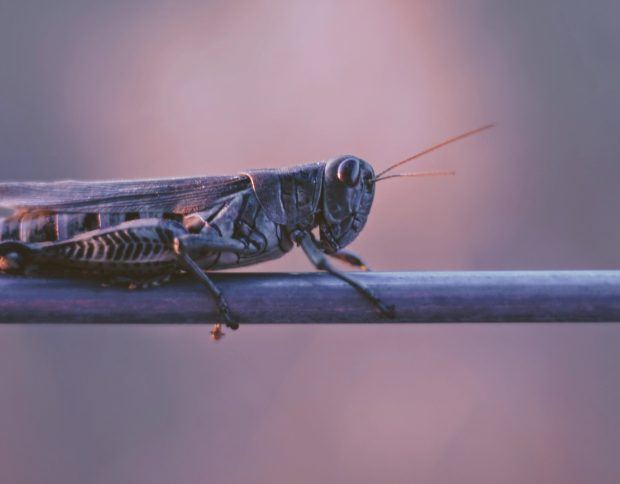This past week, South African Johanna Mazibuko celebrated her 128th birthday. Yep, you read that right. While she has yet to be acknowledged by Guinness (the record for the oldest living person is currently held by Lucile Randon who is 118 years old.), Mazibuko was born on 11 May 1894, having lived through British colonialism, The Republic of South Africa’s independence, Apartheid, democracy, as well as two world wars.
Mazibuko currently lives in Jouberton in Klerksdorp, North West, South Africa, with her caregiver but she was born on a maize farm in the Ottosdal area, being the first of 12 children; sadly only three are still alive. While she’s managed to reach such an advanced age, Mazibuko and her siblings never had the opportunity to learn to read or write. However, the centenarian has no regrets, sharing that “I was born on a farm. We lived so well on the farms. There were no problems.”
While Mazibuko does not remember much of her childhood, there are a few things that she remembers, especially regarding her dietary and wellness habits. In fact, it is here that we may find the secret to her longevity.
A 128-Year-Old’s Guide To Longevity
1. Eat your (wild) spinach
Speaking about her diet, Mazibuko revealed that growing up, her diet consisted of wild spinach, which has been found to be more nutritionally dense than cultivated spinach.
Wild spinach is rich in vitamin A, which we know is incredible for your longevity. It protects your eyesight, but it also supports a healthy immune system, thus protecting you from illnesses and diseases that can compromise your health.

Johanna Mazibuko ID/News24
Wild spinach also contains folate, which is excellent for you, regardless of whether you’re pregnant. This is because folate not only helps to keep your bones healthy, and it’s also been linked to potentially reducing the risk for Alzheimer’s disease (1).
In addition to vitamin A and folate, wild spinach also contains magnesium, which has been found to improve longevity. In fact, research published in the Journal of Nutritional Solutions found that those with higher levels of magnesium had a 34% reduced risk of mortality when compared to lower levels of magnesium.
Thiamine is another mineral that can be found in wild spinach, and it’s great for your health. This is because it not only provides antioxidant support but also helps to maintain, as well as improve, the health of your heart and nervous system.
2. Drink your milk
In addition to eating wild spinach, Mazibuko’s childhood diet also consisted of her drinking fresh milk. Yes, dairy-based products are often seen as unhealthy, but it’s important to remember that the dairy-based products that line the shelves at the supermarkets are 100-times more processed than the milk that Mazibuko was drinking over a century ago.
So, is the less processed milk the better? Well, let’s see what the research says.
A study published in Oxidative Medicine and Cellular Longevity found a strong association between drinking low-fat milk – both nonfat and 1% milk – and less aging in adults when compared to people who drink high-fat milk.
That said, there is research that has found that dairy can have a detrimental effect on your health, so it really all comes down to whether or not you as an individual would like to consume it, especially because there are so many milk alternatives out there.
3. Nibble on some locusts
Oh, like you’ve never eaten bugs before.
One aspect of Mazibuko’s childhood that she does remember is when there was an infestation of locusts on the farms.

Photo by Joshua Hoehne on Unsplash
“There were ones we could catch and eat. It was like you are eating meat. We would just fry them and eat them like that, just on their own.”
So, is eating locusts worth the crunch? Well, locusts are an excellent source of protein, which we know the body needs for optimal function. Additionally, a study published in PLOS One found that locusts contain high levels of phytosterols that can help to reduce one’s risk of cardiovascular diseases by blocking the absorption of cholesterol.
4. Get farming
Did you know that, according to statistics, farmers have longer life expectancies in comparison to the public?
Mazibuko shared that she had seven children with her late husband and, as her mother did with her, she raised them all on the farm,
“When you don’t have money, you suffer. On the farms, we lived off the things we farmed. We would get rations as well. At the end of the year, we would get sacks of maize, and we would go and sell them and make money. If I was not old, I would go back to the farms.”
So, how exactly has farming helped people live longer?
Well for one, when it comes to food, you end up growing most of what you eat. Not only is homegrown food tastier, but it’s also richer in nutrients, which can be great for the body. Now, if you’re not interested in moving to a farm just so you can enjoy fresh vegetables, why not start your own vegetable garden? Not only does gardening have its own benefits for your health, but children are more likely to eat vegetables if they are homegrown.
Leaving a legacy
As she prepares for her time to come to an end on Earth, Mazibuko has given her caregiver specific instructions on how to bury her,
“When I die, they must slaughter a cow for me. They must bury me well, so that I never bother them.”
MAIN IMAGE CREDIT: NEWS24
References
https://www.healthline.com/nutrition/vitamin-a-benefits
https://www.sciencedaily.com/releases/2007/04/070418163652.htm
Cheseto, X., Kuate, S. P., Tchouassi, D. P., Ndung’u, M., et al. (2015). Potential of the Desert Locust Schistocerca gregaria (Orthoptera: Acrididae) as an Unconventional Source of Dietary and Therapeutic Sterols. PloS one, 10(5), e0127171. https://doi.org/10.1371/journal.pone.0127171
Guasch-Ferré, M., Bulló, M., Estruch, R., Corella, D., et al (2014). Dietary magnesium intake is inversely associated with mortality in adults at high cardiovascular disease risk. The Journal of nutrition, 144(1), 55–60. https://doi.org/10.3945/jn.113.183012
Tucker L. A. (2019). Milk Fat Intake and Telomere Length in U.S. Women and Men: The Role of the Milk Fat Fraction. Oxidative medicine and cellular longevity, 2019, 1574021. https://doi.org/10.1155/2019/1574021
Zhang, X., Bao, G., Liu, D., Yang, Y., et al. (2021). The Association Between Folate and Alzheimer’s Disease: A Systematic Review and Meta-Analysis. Frontiers in neuroscience, 15, 661198. https://doi.org/10.3389/fnins.2021.661198





![women [longevity live]](https://longevitylive.com/wp-content/uploads/2020/01/photo-of-women-walking-down-the-street-1116984-100x100.jpg)










